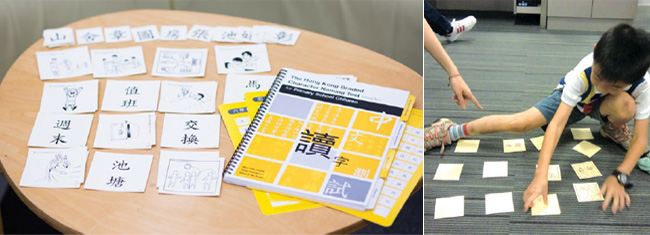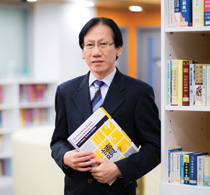
The programme focuses on games based on children’s learning stages.
An academic has developed an intervention programme which delivers a psycholinguistic-theory-driven treatment for children with reading difficulties.
In Hong Kong, about 10% of primary students suffer from reading difficulties of various degrees. With the current individual mode of service delivery, most of them face long waits for treatment, which means that the best possible time for intervention could be missed. In view of this, Dr Leung Man-tak at the Department of Chinese and Bilingual Studies has developed an intervention programme for local primary students entitled "Accelerating Reading Ability" (ARA).
Dr Leung designed the ARA programme, a treatment based on a psycholinguistic theory of dyslexia, as a school-based intervention programme for local primary students with specific reading difficulties and their caretakers. The programme covers around 160 words based on a scaffolding approach in which new vocabulary is introduced and learnt words are revised in each session. Games based on children's stages of learning are also relied on heavily. Caretakers receive training on the theory of the treatment programme conducted by a speech therapist, and home practice skills are instilled.
Now, the programme has been incorporated as one Service-Learning subject. Recently, 43 PolyU undergraduate students participated in a specially designed Service-Learning programme in which they used ARA for 10 weeks to serve 15 primary students with reading difficulties and their caretakers. Before starting their service, they were required to attend lectures, a group session, an interactive tutorial and an e-learning module, and completed reflective journals, all of which equipped them with the skills needed to deliver reading-difficulty-related treatment.
The students found that they could link the activities and experiences of their Service-Learning to the subject content, and they learned to apply the necessary knowledge and skills to deal with complex issues in the service setting. They also reported feeling more empathy towards the needy and developing a stronger sense of civic responsibility. ♦

